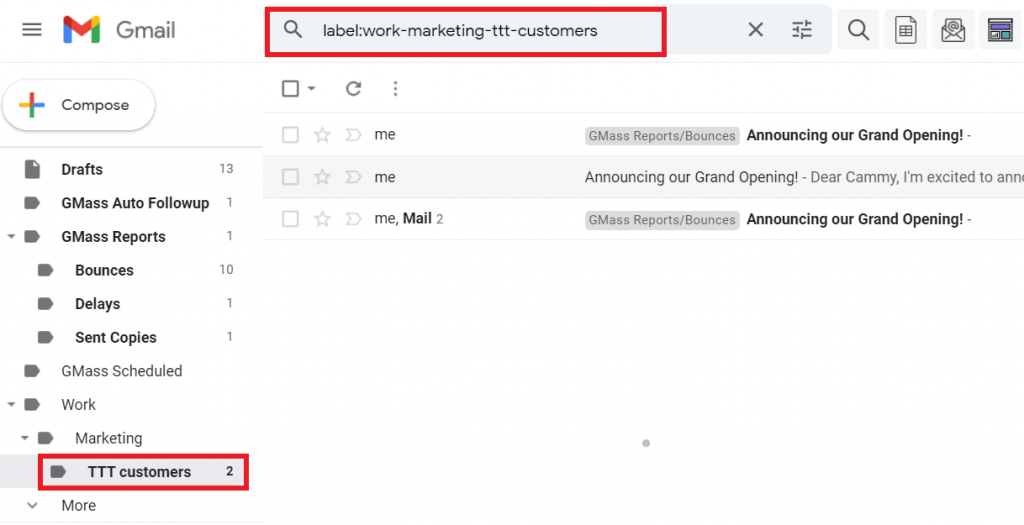Expert Methods To Choosing An Email List Website
Expert Methods To Choosing An Email List Website
Blog Article
What Should I Think About Prior To Buying A Cpa Email List?
Take note of these aspects when purchasing Consider these factors when purchasing a CPA list (Certified Public Accountant). You want to make sure the list is relevant, high-quality and compliant with legal requirements. Here's what you need to consider:1. Data Quality and Accuracy
The source of the data: Confirm whether the list is original. Trustworthy companies typically obtain their data from reliable sources like trade associations or directories. Avoid lists that are compiled using scraping or unreliable means, as they may contain outdated or inaccurate information.
Verification Process: Check that the email list is recently validated. This helps reduce bounce rates and helps ensure that you're getting legitimate, active emails. You should inquire as to how often the list is updated as CPAs often change firms and jobs.
Segmentation and Filters: A good CPA list should provide different ways to segment, including the location (city, state or country) and industry expertise (e.g. taxation, auditing or financial planning) years of experience or firm size. A targeted targeting strategy that is based on these variables can enhance the effectiveness of your advertising campaigns.
2. Legal Regulations
Data Privacy Laws: Ensure that the email list complies with laws governing data protection, like the General Data Protection Regulation (GDPR), the California Consumer Privacy Act (CCPA) as well as any other applicable local regulations. Lists should contain email addresses that have been legally obtained and have been acquired with the proper consent.
Compliance with CAN SPAM Act: To ensure that U.S. campaigns comply with CAN SPAM Act, which regulates commercial email communications the list has to be in compliance. Included in this is the provision of opt-out mechanisms, and the use of untrue content or subject lines. Failure to comply with the law may lead to fines or legal problems.
Opt-in Consent: Check that email addresses have been obtained via opt-in consent. This means that the recipient consented to receiving marketing emails from third parties. This reduces the risk of receiving spam complaints. It also increases engagement.
3. Provider Reputation
Learn about the reputation and track record of the company you choose to work with. Read the testimonials of customers, case studies and reviews to get a feel about what customers who have used the service previously had to say about their experience. Established firms with proven record of success are more likely to offer accurate, high-quality data.
Transparency: Providers must be transparent in how they gather data and how often it is changed. If the service provider isn't able to provide a clear explanation of their methodology, this should raise an alarm.
Customer Support - If looking for help with customization of lists, troubleshooting problems, or compliance regulations, an experienced support team is vital. Support can save time and help you save time when it comes to campaigning.
4. Cost and Return on Investment
Pricing Models. Providers offer different pricing models. Some charge for each contact, while others offer monthly fees or subscriptions. Check the cost against the expected ROI, and balance price with the standard of the service.
Check out refund policies. If you have many incorrect or invalid email addresses, a majority of service companies offer a replacement or refund policy. A guarantee can give you peace of mind.
Price compares to. value: don't just look at price. Lists that are less expensive may be attractive however they may have low bounce or engagement when they are of lower quality. Make sure you purchase lists that provide quality through accuracy of data and segmentation options.
5. Use and Ownership of Data
Single-Use and Multiple-Use. Multiple-Use: Determine if you're purchasing the list to use for a specific time or if you own the data and can use it for ongoing campaigns. Although single-use list may be less expensive, owning the list allows you to conduct long-term marketing campaigns.
Exclusive vs. Shared Lists - Determine if you are the only person who purchases an email list or if multiple buyers share it. Lists shared with others can cause the audience becoming tired, especially if those who are on it are constantly bombarded with marketing emails.
6. Data Format and Integration
CRM Compatibility. Make sure the list has been delivered in a CSV or Excel format. This will ensure easy management of data as well as its transfer.
User-Friendliness: Find out how easy the data can divided and managed after integration into your system. Personalization and targeting can be more effective with a well-organized lists.
7. Ethical Aspects
Relevance and value of content Since CPAs are hard at work It is vital that you send material that is both pertinent and beneficial. Sending irrelevant or spammy messages can damage your reputation and cause more complaints.
Avoid sending too many emails: Limit the number of times you contact your contacts. Unintentional communication can lead to people being removed from your list or complaints. Both of these could have a negative impact on the reputation of your sender.
The article's conclusion is:
When buying a CPA email list, you should consider the quality of the data legal compliance, data quality, and the provider's reputation to ensure that your investment is worth it. The right segmentation will allow you to increase your engagement and ROI. View the most popular cpa email list for website recommendations.
What Factors Should I Be Thinking About When Buying An Urgent Care Email List?
To determine if an urgent care email database is efficient in accuracy, complete, and relevant for your marketing goals it is necessary to evaluate various elements. These are the most important aspects to consider. Quality and Accuracy of the Data
Source of Data: Make sure the data is collected from reliable sources like medical associations, healthcare databases or directories for professionals. Avoid lists compiled through scraping or unreliable methods, because they could contain outdated or incorrect information.
Verification: Make sure that the email list was regularly up-to-date. A reliable provider follows an extensive verification process to get rid of invalid, outdated, and duplicate email addresses. This guarantees high delivery and decreases bounce rate.
Segmentation and Targeting: The segmentation should include information such as the place of the clinic (e.g. city, state, or region) and its size and any particularizations (e.g. diagnostics and pediatrics) and the roles of key decision-makers (e.g. doctors or practice owners, etc.). Specific lists boost participation rate and increase the relevance.
2. Legal Regulations
Data Privacy Laws : Ensure your list complies the relevant data protection legislation for example, in Europe the General Data Protection Regulation, in the U.S. the California Consumer Privacy Act and any other local regulations. This implies that email addresses should only be collected after a consent to processing and collection.
Conformity to the CAN-SPAM Act: In the U.S., your email marketing campaigns must be in compliance with the CAN-SPAM Act. This means that you must provide an opt-out button, refrain from using misleading subject line as well as include your physical address when sending emails. Failure to comply could result in fines and a damaged reputation for your business.
Opt-In Consent - Ensure that the recipients of the email addresses on your list have expressly accepted receiving marketing emails from third party companies. This reduces the chance of legal and spam complaints.
3. Provider Reputation
Established Providers: Search for an organization that has a history of providing email lists that are good quality and with compliance. Review testimonials, reviews, or case studies from previous clients to determine the service's reliability and satisfaction with their customers.
Transparency: The provider should be clear about how data was collected and when it's up-to-date. If the company isn't able to give clear information about the methods used to collect data this could indicate low-quality data.
Customer Support: A solid support staff is vital for those who require help in tackling technical issues as well as list customization or conformity. A responsive service provider can aid you in maximizing the use of your database for email.
4. Cost and return on investment (ROI).
Pricing Models: Email list providers generally offer different pricing structures such as pay-per-contact and flat costs. Think about the pricing structure in relation to your marketing budget and the expected ROI. Balance the cost of the list against the accuracy and quality of the information.
Refund or Replace Policy: Many trustworthy providers will provide the option of a replacing or refunding your purchase if you discover that a substantial amount of your emails are inactive. Be sure to understand the policy's terms before you purchase.
Value for money - Instead of go with the most affordable option take a look at lists that contain precise information or an elaborate segmentation. Making investments in top-quality lists can increase engagement and increase your return on investment.
5. Data Usage and Ownership
Multiple-Use or Single-Use? Find out if you can use this list for one campaign, or multiple times. Lists which allow for multiple uses offer better value. This is particularly true if you are planning to run ongoing campaigns.
Exclusive vs. Shared lists: Determine the list's exclusivity or shared. Shared Lists can lead to lists to become fatigued because the recipients will receive multiple marketing messages.
6. Data Format and Integration
CRM compatibility: Make sure whether the list of emails is sent in an email format that is compatible with your Customer Relationship Manager (CRM), or an email platform. It could be CSV or Excel. This allows for seamless integration and enables you to launch your marketing campaign as soon as possible.
Easy-to-use: The list should be simple to manage and sort it according to your requirements. A well-organized list of email addresses allows you to target and personalize your messages.
7. Ethical aspects
Relevance of Content: Health professionals working in urgent care are often busy, therefore your communication should be timely and valuable. Adapt your message to their needs. For instance when you're advertising medical equipment, products or healthcare technology that is compatible with urgent care operations make sure you tailor your message. Inadequate content can damage your reputation and decrease engagement.
Avoid Spam by being mindful of the frequency at which you send emails. Sending too many emails or unwelcome messages can lead to spam complaints and reduce your reputation as a sender.
Conclusion
Be sure to consider the data's quality, legal compliance and reputation when purchasing an urgent-care email list. Check to see if the list has been segmented. The data must be kept up-to-date and must meet all privacy regulations. If you invest in a top-quality targeted list, and sending relevant content, you will increase engagement and earn an impressive return on investment. View the top rated urgent care email list for website guide.